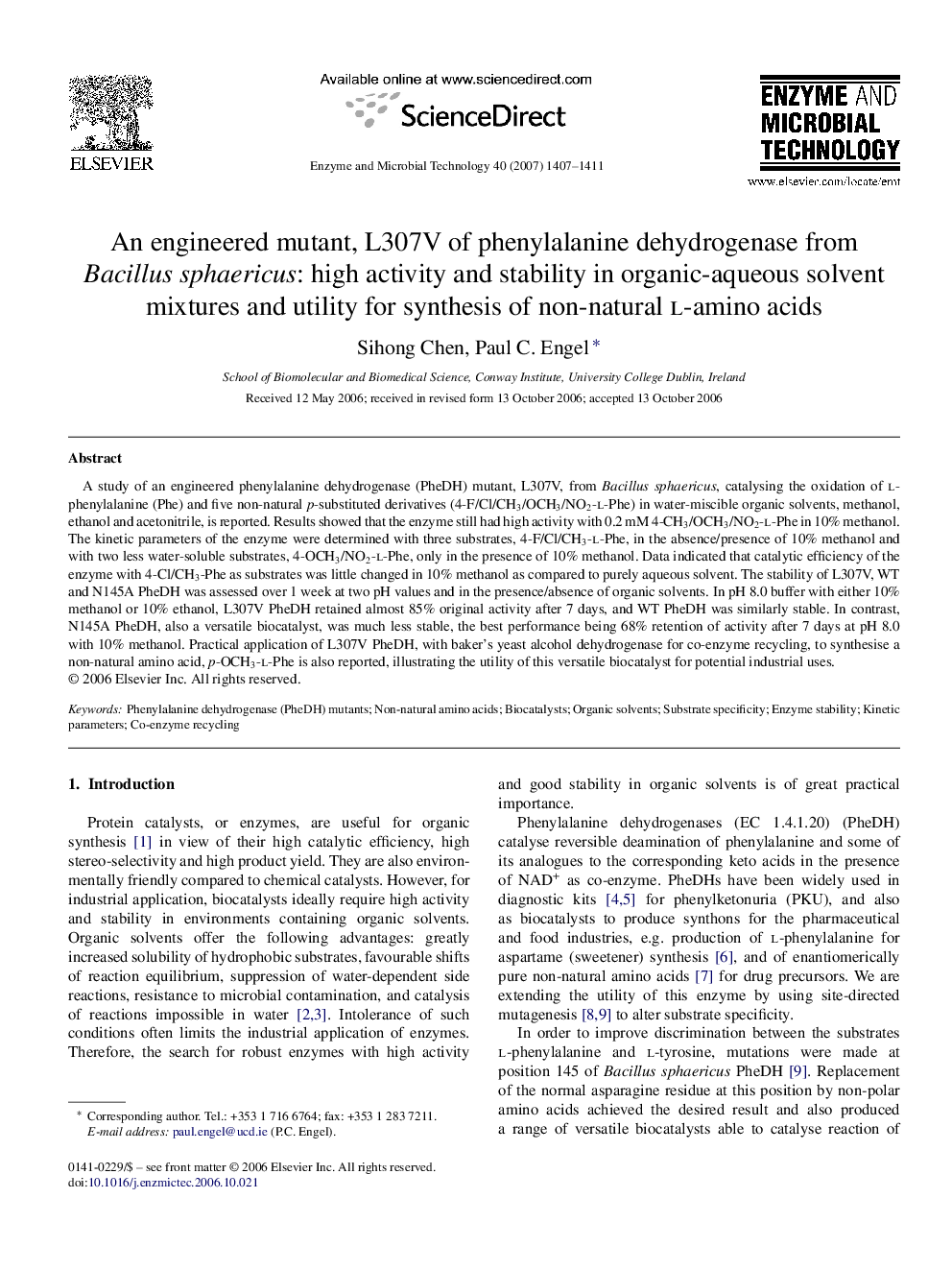| Article ID | Journal | Published Year | Pages | File Type |
|---|---|---|---|---|
| 18192 | Enzyme and Microbial Technology | 2007 | 5 Pages |
A study of an engineered phenylalanine dehydrogenase (PheDH) mutant, L307V, from Bacillus sphaericus, catalysing the oxidation of l-phenylalanine (Phe) and five non-natural p-substituted derivatives (4-F/Cl/CH3/OCH3/NO2-l-Phe) in water-miscible organic solvents, methanol, ethanol and acetonitrile, is reported. Results showed that the enzyme still had high activity with 0.2 mM 4-CH3/OCH3/NO2-l-Phe in 10% methanol. The kinetic parameters of the enzyme were determined with three substrates, 4-F/Cl/CH3-l-Phe, in the absence/presence of 10% methanol and with two less water-soluble substrates, 4-OCH3/NO2-l-Phe, only in the presence of 10% methanol. Data indicated that catalytic efficiency of the enzyme with 4-Cl/CH3-Phe as substrates was little changed in 10% methanol as compared to purely aqueous solvent. The stability of L307V, WT and N145A PheDH was assessed over 1 week at two pH values and in the presence/absence of organic solvents. In pH 8.0 buffer with either 10% methanol or 10% ethanol, L307V PheDH retained almost 85% original activity after 7 days, and WT PheDH was similarly stable. In contrast, N145A PheDH, also a versatile biocatalyst, was much less stable, the best performance being 68% retention of activity after 7 days at pH 8.0 with 10% methanol. Practical application of L307V PheDH, with baker's yeast alcohol dehydrogenase for co-enzyme recycling, to synthesise a non-natural amino acid, p-OCH3-l-Phe is also reported, illustrating the utility of this versatile biocatalyst for potential industrial uses.
